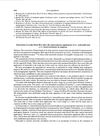 August 2023 in “Journal of The American Academy of Dermatology”
August 2023 in “Journal of The American Academy of Dermatology” New treatments for hair loss include low-dose pills, updated drugs, supplements, light therapy, plasma injections, and advanced hair transplant techniques.
 2 citations,
September 2013 in “Journal of Cosmetic Dermatology”
2 citations,
September 2013 in “Journal of Cosmetic Dermatology” Hair restoration combines drugs and follicular unit grafting for natural, long-lasting results.
 1 citations,
August 2022 in “JAAD case reports”
1 citations,
August 2022 in “JAAD case reports” Pioglitazone use was linked to hair regrowth in a patient with permanent hair loss from cicatricial alopecia.
 July 2024 in “Forum Dermatologicum”
July 2024 in “Forum Dermatologicum” Topical treatments for hair loss can be effective but need careful safety evaluation.

There are many treatments for common hair loss, but more trials are needed to decide which are best.
January 2022 in “Clinical Cases in Dermatology” An 11-year-old girl with severe hair loss was successfully treated with a new combination therapy.
 1 citations,
July 2019 in “Journal of the American Academy of Dermatology”
1 citations,
July 2019 in “Journal of the American Academy of Dermatology” Case reports are crucial for identifying new medical conditions and improving knowledge retention.

The review found that PRP is the most effective treatment for hair loss with few side effects.
 July 1988 in “Journal of The American Academy of Dermatology”
July 1988 in “Journal of The American Academy of Dermatology” Various dermatologic treatments were effective for skin conditions like acne, rosacea, hair loss, and psoriasis from December 1986 to December 1987.
February 2025 in “Pediatric Dermatology” Some pediatric Ewing's sarcoma patients may experience permanent hair loss after chemotherapy, and treatments might not fully restore hair.
 November 2024 in “SKIN The Journal of Cutaneous Medicine”
November 2024 in “SKIN The Journal of Cutaneous Medicine” The gummy improved hair growth and reduced shedding in women.
 May 2024 in “Journal of cosmetic dermatology”
May 2024 in “Journal of cosmetic dermatology” "Dutasteride 0.5 mg daily is the most effective treatment for male hair loss."
 24 citations,
January 1993 in “Dermatologic Clinics”
24 citations,
January 1993 in “Dermatologic Clinics” Minoxidil effectively treats hair loss, works better for women, and requires consistent use.
 18 citations,
January 1997 in “British Journal of Dermatology”
18 citations,
January 1997 in “British Journal of Dermatology” 5% topical minoxidil can cause severe body hair growth, which disappears after stopping treatment.
 7 citations,
January 1987 in “Archives of Dermatology”
7 citations,
January 1987 in “Archives of Dermatology” Most people using minoxidil for hair loss probably won't see significant improvement.
 152 citations,
April 2012 in “Recent Patents on Inflammation & Allergy Drug Discovery”
152 citations,
April 2012 in “Recent Patents on Inflammation & Allergy Drug Discovery” Minoxidil treats hair loss, promotes growth, has side effects, and has recent patents.
 138 citations,
August 1985 in “Journal of The American Academy of Dermatology”
138 citations,
August 1985 in “Journal of The American Academy of Dermatology” Minoxidil promotes hair growth in male pattern baldness.
 137 citations,
May 1984 in “Journal of Investigative Dermatology”
137 citations,
May 1984 in “Journal of Investigative Dermatology” Minoxidil increases blood flow in balding scalps, possibly reversing hair loss.
 80 citations,
September 1984 in “Journal of The American Academy of Dermatology”
80 citations,
September 1984 in “Journal of The American Academy of Dermatology” 5% minoxidil helps hair regrowth in androgenic alopecia.
 78 citations,
April 1984 in “Archives of Dermatology”
78 citations,
April 1984 in “Archives of Dermatology” Minoxidil can help regrow hair in alopecia areata patients.
 61 citations,
March 1981 in “Circulation”
61 citations,
March 1981 in “Circulation” Minoxidil improves blood flow in heart failure patients.
 60 citations,
January 1989 in “Toxicologic Pathology”
60 citations,
January 1989 in “Toxicologic Pathology” Using minoxidil on dogs can cause serious cardiovascular damage, including arterial injury and hemorrhagic lesions.
 57 citations,
January 1980 in “Journal of Cardiovascular Pharmacology”
57 citations,
January 1980 in “Journal of Cardiovascular Pharmacology” Minoxidil treats high blood pressure and side effects can be managed.
 34 citations,
September 1985 in “Contact Dermatitis”
34 citations,
September 1985 in “Contact Dermatitis” Minoxidil can cause skin irritation like eczema and rash in some users.
 31 citations,
January 1989 in “Clinical and Experimental Dermatology”
31 citations,
January 1989 in “Clinical and Experimental Dermatology” The study tested a hair treatment and found it can help grow hair, but won't stop baldness. It's safe and works well, but needs more testing.
 28 citations,
May 1994 in “The Journal of Urology”
28 citations,
May 1994 in “The Journal of Urology” Topical minoxidil not effective for erectile dysfunction treatment.
 26 citations,
March 1985 in “International Journal of Dermatology”
26 citations,
March 1985 in “International Journal of Dermatology” Minoxidil helps hair growth, but results vary.
 25 citations,
November 1987 in “British Journal of Dermatology”
25 citations,
November 1987 in “British Journal of Dermatology” Minoxidil didn't increase scalp blood flow for hair growth, but hexyl nicotinate did.
 20 citations,
February 1985 in “Archives of Dermatology”
20 citations,
February 1985 in “Archives of Dermatology” Minoxidil helps hair regrowth, especially with more indeterminate hairs.
 19 citations,
December 1985 in “Journal of The American Academy of Dermatology”
19 citations,
December 1985 in “Journal of The American Academy of Dermatology” Minoxidil can cause scalp comedones and acne.




























